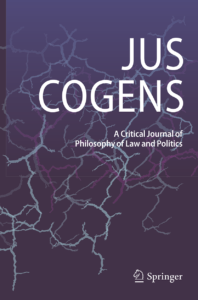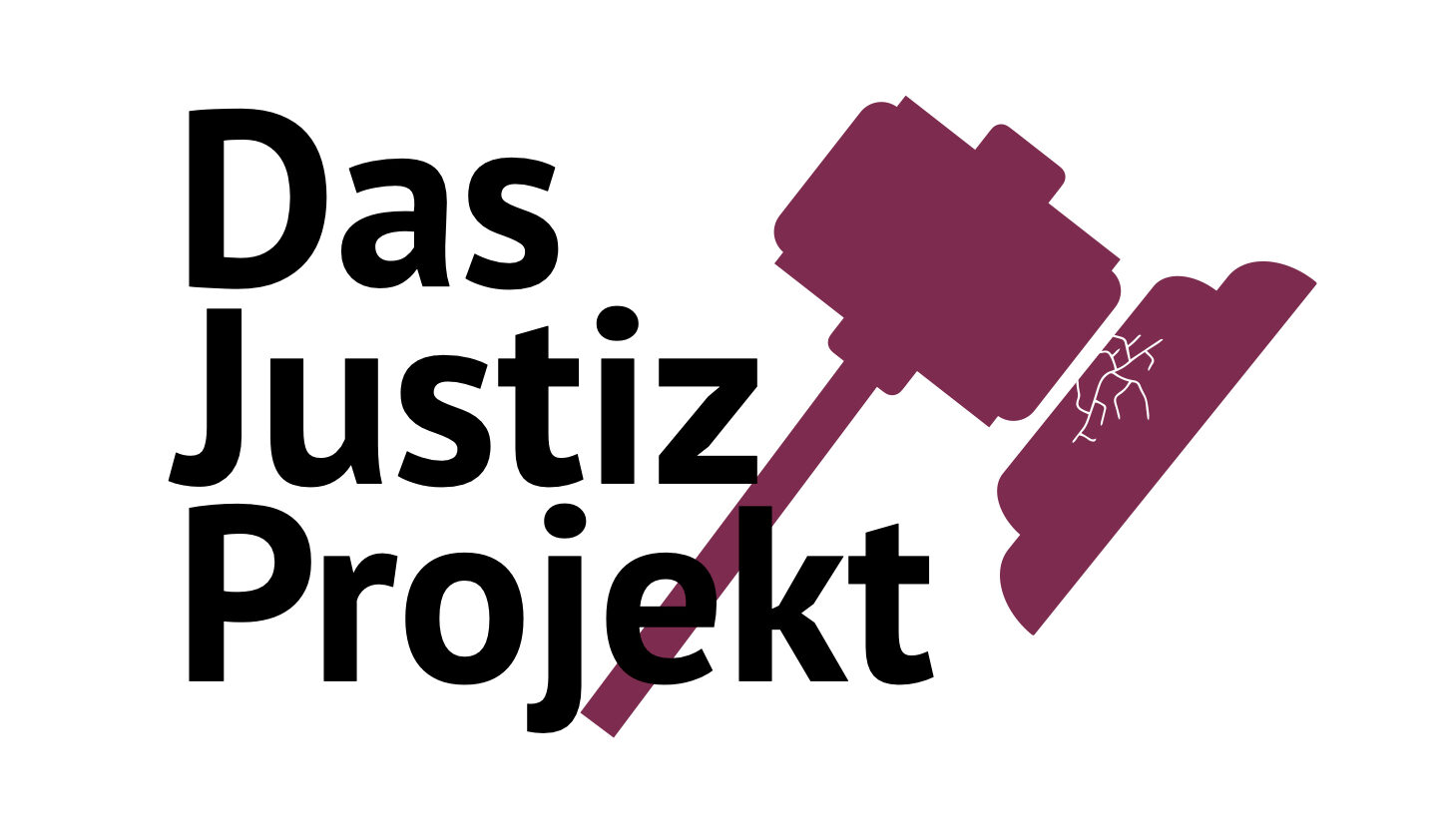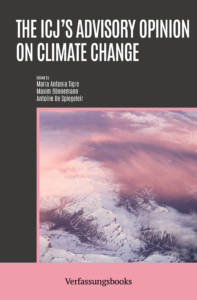Peace by Chairman
Das Board of Peace, gegründet am Rande des Weltwirtschaftsforums in Davos, inszeniert sich als pragmatischer Gegenentwurf zu den Vereinten Nationen. 60 Staaten wurden zur Mitarbeit eingeladen, 21 erklärten ihre Bereitschaft zum Beitritt. In Europa überwog jedoch die Skepsis. In Deutschland ist diese Skepsis auch verfassungsrechtlich begründet: Das Board weist institutionelle Defizite auf, konzentriert Entscheidungsbefugnisse und ist nicht hinreichend an die Mitgliedstaaten rückgebunden.
Continue reading >>KI ohne Verantwortung?
Auf X Corp zeigte sich binnen weniger Tage, wie die Integration des KI-Tools Grok sexualisierte Deepfakes realer Frauen und Minderjähriger massenhaft hervorbrachte und verbreitete. Die Vorgänge verweisen nicht nur auf individuelles Fehlverhalten, sondern auf eine strukturelle Verantwortungsfrage, wenn Erzeugungs-, Verbreitungs- und Gestaltungsmacht in einer Plattform gebündelt sind. Der Fall stellt damit die dogmatische Reichweite des Strafrechts gegenüber privaten Infrastrukturbetreibern grundlegend zur Disposition – auch mit Blick auf Elon Musk als zentralen Entscheidungsträger.
Continue reading >>„In Bonn haben wir ja die Gleichberechtigung der Frau beschlossen.“
Mit der „Kampfansage “ führender SPD-Politikerinnen, die bei einer erneuten Wahlrechtsreform Vorkehrungen für eine geschlechterparitätische Besetzung des Bundestages fordern, geht die Debatte über ein paritätisches Wahlrecht in die nächste Runde. Der rechtswissenschaftliche Paritätsdiskurs hat sich hingegen in eine Sackgasse manövriert. Einen Ausweg kann eine verfassungsgeschichtliche Perspektive bieten, zumal die historische Dimension der Paritätsfrage auffällig unterbelichtet ist.
Continue reading >>Karlsruher Sicherheitskonferenz
Das Bundesverfassungsgericht hat eine von einem im Gazastreifen lebenden Palästinenser erhobene Verfassungsbeschwerde nicht zur Entscheidung angenommen. Pünktlich zur Münchener Sicherheitskonferenz konnte Karlsruhe grünes Licht geben: Die Bundesregierung hat freie Hand. Gewalt geht immer von den anderen aus: von den Amerikanern in Ramstein, von den deutschen Rüstungsfirmen, von der IDF. In der Mitte die Bundesregierung als die große Unterlassende mit einem ganz weit bemessenen Spielraum zur eigenverantwortlichen Aufgabenwahrnehmung im Bereich der auswärtigen Politik.
Continue reading >>Drawing Red Lines
Lately, there has been much talk of “red lines” in German politics. Take, for instance, the recent recommendations of the conservative think tank Republik21 on how to deal with the so-called “New Right”, according to which the “Brandmauer” policy of strict exclusion of the AfD should be replaced with differentiated red lines. CDU and CSU should in future determine their course on the basis of what is “constitutionally permissible” and what is “politically capable of commanding consent”. In other words: the question of what counts as a red line when forming majorities with the AfD, where it runs and what it separates from what, is, according to R21, something conservatives should answer by looking into the Basic Law – or into the mirror. Can that work?
Continue reading >>Rote Linien ziehen
Neuerdings ist viel von „roten Linien“ die Rede. So empfiehlt etwa die konservative Denkfabrik Republik21 der sogenannten bürgerlichen Politik, für den Umgang mit sogenannten neuen Rechten „rote Linien“ zu ziehen statt „Brandmauern“ zu bauen. Deren Verlauf sollten CDU und CSU künftig anhand des „verfassungsrechtlich Zulässigen“ sowie des „politisch Zustimmungsfähigen“ ermitteln. Mit anderen Worten: Die Frage, was beim Bilden von Mehrheiten mit der AfD als rote Linie gilt, wo sie verläuft und was sie wovon abgrenzt, sollen die Konservativen laut R21 durch einen Blick ins Grundgesetz bzw. in den Spiegel beantworten. Kann das funktionieren?
Continue reading >>Frontex Under Scrutiny
In the evolving landscape of EU border accountability, the Court of Justice of the European Union delivered its ruling in Hamoudi v Frontex (C-136/24 P) on 18 December 2025. This Grand Chamber decision not only reversed the General Court’s dismissal but also fundamentally recalibrated the evidentiary standards for establishing Frontex’s liability for fundamental rights violations. As FM v Frontex (T-511/24), a closely related case, awaits its judgment, Hamoudi’s legacy in establishing Frontex’s accountability and lowering the burden of proof for vulnerable migrants, promises to reshape its outcome.
Continue reading >>Is the International Olympic Committee’s Decision to Disqualify Vladyslav Heraskevych Legal?
On 12 February 2026, Vladyslav Heraskevych had his Olympic accreditation withdrawn by the International Olympic Committee. If the Court of Arbitration for Sport takes seriously its responsibility to ensure that the IOC’s regulations and decisions imposed on Olympians are compatible with international and European human rights law, in line with the IOC’s express commitment in its Olympic Charter, it is difficult to see how it could not declare Heraskevych’s disqualification and loss of accreditation unlawful and reinstate at least the athlete’s accreditation.
Continue reading >>Zwei-Klassen-Freizügigkeit
Schon jetzt leben EU-Bürger*innen ohne Arbeitnehmerstatus in Deutschland sozial prekär: Sie haben weder bedingungslosen Zugang zu Sozialleistungen noch einen Anspruch auf Bürgergeld. In den letzten drei Monaten haben drei zentrale politische Akteure – Bundesrat, Sozialstaatskommission sowie Arbeits- und Sozialministerkonferenz – weitere Verschärfungen beschlossen, die für viele tausend EU-Zugewanderte Gesundheitsversorgung, Sozialleistungen und Kindergeld einschränken sollen. Dieses systematische Programm der Ausgrenzung und Abschottung führt unweigerlich zu massiven Diskriminierungen.
Continue reading >>Gute Behinderungen ins Töpfchen, schlechte ins Kröpfchen
Das VG Wiesbaden verweigerte einem chronisch kranken Referendar mit Konzentrationsschwierigkeiten und erhöhtem Regenerationsbedarf zusätzliche Schreibzeit, da Arbeiten unter Zeitdruck zum Kernbestandteil juristischer Prüfungen gehöre. Diese Schlussfolgerung hält den verfassungsrechtlichen Anforderungen aus Art. 3 Abs. 3 Satz 2 GG („Niemand darf wegen seiner Behinderung benachteiligt werden.“) nicht stand, weil sie bei bestimmten Behinderungen das Recht auf Nachteilsausgleiche, die bei anderen Behinderungen regelmäßig gewährt werden, vorschnell abschneidet.
Continue reading >>CURRENT DEBATES
Reflexive Globalisation and the Law
In October 2025, a new Centre for Advanced Studies was established at the Humboldt University of Berlin’s Law Faculty. Named “Reflexive Globalisation and the Law: Colonial Legacies and their Implications in the 21st Century” (RefLex), the Centre explores the premise that the globalisation of law and legal discourse has entered a reflexive phase: one in which law and knowledge production about law are less and less one-directional exports from or within the Global North but rather dynamic, multidirectional exchanges that confront colonial legacies, epistemic hierarchies, and enduring asymmetries of power. This blog symposium, co-edited by Philipp Dann, Florian Jeßberger, and Kalika Mehta, aims to present and extend these interactions to a broader, accessible dialogue with a wider community beyond the university setting. Featuring contributions from a range of different disciplines and regions, the symposium serves as a public prelude to its official launch, which can be watched live here.
Read all articles >>Wem gehört die Wissenschaft?
Wem gehört die Wissenschaft – und wem sollte sie gehören? Obwohl Wissen als öffentliches Gut prinzipiell unbegrenzt teilbar ist, wird der Zugang zu wissenschaftlichen Publikationen und Infrastrukturen durch ökonomische und rechtliche Strukturen beschränkt. Zwischen kommerziellen Verlagsmodellen, staatlicher Finanzierung und Community-getragenen Open-Access-Initiativen stellen sich grundlegende Fragen nach Eigentum, Verantwortung und Unabhängigkeit wissenschaftlicher Arbeit. Das Blog-Symposium „Wem gehört die Wissenschaft?“ greift diese Frage auf und beleuchtet Facetten der Organisation von Wissenschaft als Gemeingut, der Eigentums- und Machtverhältnisse im Publikationssystem und der Bedingungen offener und freier Wissensproduktion.
Read all articles >>ADVERTISEMENT
 Volume 7,
Volume 7,Issue 2
July 2025
JUS COGENS
-
Killing Hitler Word by Word: The Oath as Apocalyptic Lawmaking
GREGOR NOLL
-
Adjudicating Climate Protest as a Tool of Modern Republicanism
DMITRII KUZNETSOV
OUR LATEST PUBLICATION
Maria Antonia Tigre, Maxim Bönnemann & Antoine De Spiegeleir (eds.)
The ICJ’s Advisory Opinion on Climate Change
The International Court of Justice’s Advisory Opinion on Obligations of States in Respect of Climate Change marks the most consequential development in international climate law since the adoption of the Paris Agreement. Bringing together leading scholars and practitioners from across the globe, this book offers the first comprehensive and critical examination of the opinion, exploring its doctrinal foundations, normative implications, and potential to reshape global climate governance.
Discover the Open Access digital edition here.
PROJECTS
VB Security and Crime
In cooperation with:
VB Security and Crime is a cooperation of the Max Planck Institute for the Study of Crime, Security and Law (MPI-CSL) and the Verfassungsblog in the areas of public security law and criminal law. The MPI-CSL Institute is a member of the Max Planck Law network.
Das Justiz-Projekt

Weltweit gerät die unabhängige und unparteiische Justiz unter den Druck des autoritären Populismus.
Wie verwundbar ist die rechtsprechende Gewalt in Deutschland – im Bund und in den Ländern?
VB Security and Crime
In cooperation with:
VB Security and Crime is a cooperation of the Max Planck Institute for the Study of Crime, Security and Law (MPI-CSL) and the Verfassungsblog in the areas of public security law and criminal law. The MPI-CSL Institute is a member of the Max Planck Law network.
EDITORIAL
Drawing Red Lines
Lately, there has been much talk of “red lines” in German politics. Take, for instance, the recent recommendations of the conservative think tank Republik21 on how to deal with the so-called “New Right”, according to which the “Brandmauer” policy of strict exclusion of the AfD should be replaced with differentiated red lines. CDU and CSU should in future determine their course on the basis of what is “constitutionally permissible” and
Continue reading >>Rote Linien ziehen
Neuerdings ist viel von „roten Linien“ die Rede. So empfiehlt etwa die konservative Denkfabrik Republik21 der sogenannten bürgerlichen Politik, für den Umgang mit sogenannten neuen Rechten „rote Linien“ zu ziehen statt „Brandmauern“ zu bauen. Deren Verlauf sollten CDU und CSU künftig anhand des „verfassungsrechtlich Zulässigen“ sowie des „politisch Zustimmungsfähigen“ ermitteln. Mit anderen Worten: Die Frage, was beim Bilden von Mehrheiten mit der AfD als rote Linie gilt, wo sie verläuft
Continue reading >>



